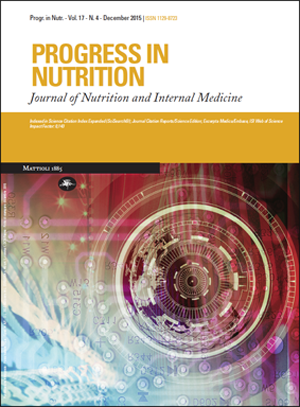Effect of ethyl acetate fraction of Melothria maderaspatana leaf on membrane bound ATPases in DOCA–salt induced hypertensive rats
Keywords:
Deoxy-corticosterone acetate, salt, hypertension, membrane bound ATPases, Melothria maderaspatanaAbstract
More recently, research has been focused on the use of medicinal plants or plants derived compounds for treatment of many diseases including hypertension. Melothria maderaspatana commonly used in traditional medicine for hypertension and numerous preclinical studies have shown wide range of pharmacological activities, including antioxidant, anti-inflammatory, anticancer and antidiabetic activities. The present study was designed to investigate the effect of ethyl acetate fraction of Melothria maderaspatana (EAFM) leaf on membrane bound ATPases in uninephrectomized deoxy-corticosterone acetate (DOCA)-salt hypertensive rats. Hypertension was induced in uninephrectomized rats by weekly twice subcutaneous injection of DOCA (25 mg/kg) and 1% NaCl in drinking water for six weeks. EAFM was administered orally once a day for 6 weeks. In the present study, administration of DOCA-salt significantly increased the systolic and diastolic blood pressure while treatment with EAFM, reverted the abnormal level of blood pressure significantly to near sham-operated control rats. The activities of Na+-K+-ATPase, Ca2+-ATPase and Mg2+-ATPase were significantly decreased in DOCA-salt induced hypertensive rats when compared to that of sham-operated control rats. Administration of EAFM to hypertensive rats restored the abnormal membrane bound ATPases activity toward the sham-operated control rats. Thus, results indicate that administration of EAFM is having good blood pressure control and to protect deranged activity of membrane-bound ATPases in DOCA-salt induced hypertensive rats. Further detailed investigation is necessary to discover M. maderaspatana mechanism of action.Downloads
Published
Issue
Section
License
This is an Open Access article distributed under the terms of the Creative Commons Attribution License (https://creativecommons.org/licenses/by-nc/4.0) which permits unrestricted use, distribution, and reproduction in any medium, provided the original work is properly cited.
Transfer of Copyright and Permission to Reproduce Parts of Published Papers.
Authors retain the copyright for their published work. No formal permission will be required to reproduce parts (tables or illustrations) of published papers, provided the source is quoted appropriately and reproduction has no commercial intent. Reproductions with commercial intent will require written permission and payment of royalties.

This work is licensed under a Creative Commons Attribution-NonCommercial 4.0 International License.


